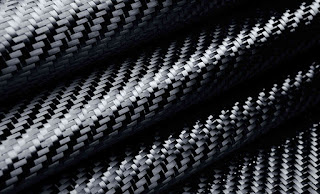The Different Types of Industrial Fabrics and Their Uses in Various Industries
Industrial fabrics are an essential component of many industries, providing strength, durability, and flexibility to a variety of applications. The diversity of industrial fabrics is vast, with materials ranging from traditional natural fibers such as cotton and wool, to synthetic fibers such as nylon and polyester. Each type of industrial fabric has unique properties that make it suitable for specific applications across various industries.
Types of Industrial Fabrics and Their Uses in Various Industries
Cotton Fabric
Cotton is one of the most commonly used fabrics in the world. It is a natural fiber that is soft, breathable, and easy to care for. Cotton fabrics are used in a range of industries, including fashion, home textiles, and medical textiles. In the fashion industry, cotton is used to create a wide range of clothing items, from t-shirts to denim jeans. In the medical industry, cotton is used to create bandages, gauze, and other medical textiles.
Wool Fabric
Wool is a natural fiber that is known for its warmth, durability, and fire resistance. Wool fabrics are used in a range of industries, including fashion, home textiles, and automotive textiles. In the fashion industry, wool is used to create warm coats, suits, and other winter clothing items. In the automotive industry, wool is used as a soundproofing material and to create seat covers.
Nylon Fabric
Nylon is a synthetic fiber that is strong, durable, and lightweight. Nylon fabrics are used in a range of industries, including fashion, outdoor textiles, and automotive textiles. In the fashion industry, nylon is used to create lightweight, breathable clothing items such as windbreakers and raincoats. In the outdoor industry, nylon is used to create tents, backpacks, and other outdoor gear. In the automotive industry, nylon is used as a lightweight and durable material for car interiors.
Polyester Fabric
Polyester is a synthetic fiber that is known for its durability, strength, and resistance to wrinkles and shrinkage. Polyester fabrics are used in a range of industries, including fashion, home textiles, and automotive textiles. In the fashion industry, polyester is used to create a wide range of clothing items, from dresses to athletic wear. In the home textiles industry, polyester is used to create bed linens, curtains, and other household textiles. In the automotive industry, polyester is used to create car seat covers and other interior components.
Kevlar Fabric
Kevlar is a synthetic fiber that is known for its strength and durability. Kevlar fabrics are used in a range of industries, including aerospace, military, and automotive. In the aerospace industry, Kevlar is used to create lightweight and strong components for spacecraft and satellites. In the military, Kevlar is used to create bulletproof vests and other protective gear. In the automotive industry, Kevlar is used as a reinforcement material for tires and other automotive components.
Fiberglass Fabric
Fiberglass is a type of reinforced plastic that is made by weaving glass fibers into a fabric. Fiberglass fabrics are used in a range of industries, including aerospace, automotive, and marine. In the aerospace industry, fiberglass is used to create lightweight and strong components for aircraft. In the automotive industry, fiberglass is used to create body panels and other components. In the marine industry, fiberglass is used to create boat hulls and other components that are resistant to water and corrosion.
In conclusion, industrial fabrics are essential components of many industries, providing strength, durability, and flexibility to a variety of applications. From traditional natural fibers such as cotton and wool, to synthetic fibers such as nylon and polyester, each type of industrial fabric has unique properties that make it suitable for specific applications across various industries.
Conclusion:
Industrial fabrics are essential components of many industries, providing strength, durability, and flexibility to a variety of applications. Industrial fabric manufacturers play a crucial role in creating high-quality and innovative fabrics that meet the diverse needs of various industries. From traditional natural fibers such as cotton and wool, to synthetic fibers such as nylon and polyester, each type of industrial fabric has unique properties that make it suitable for specific applications across various industries. By understanding the different types of industrial fabrics and their uses, manufacturers can continue to develop new and improved fabrics that drive innovation and progress in industries worldwide.




Comments
Post a Comment